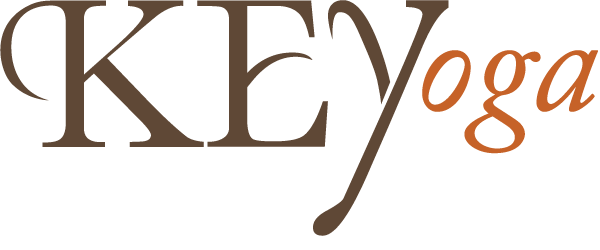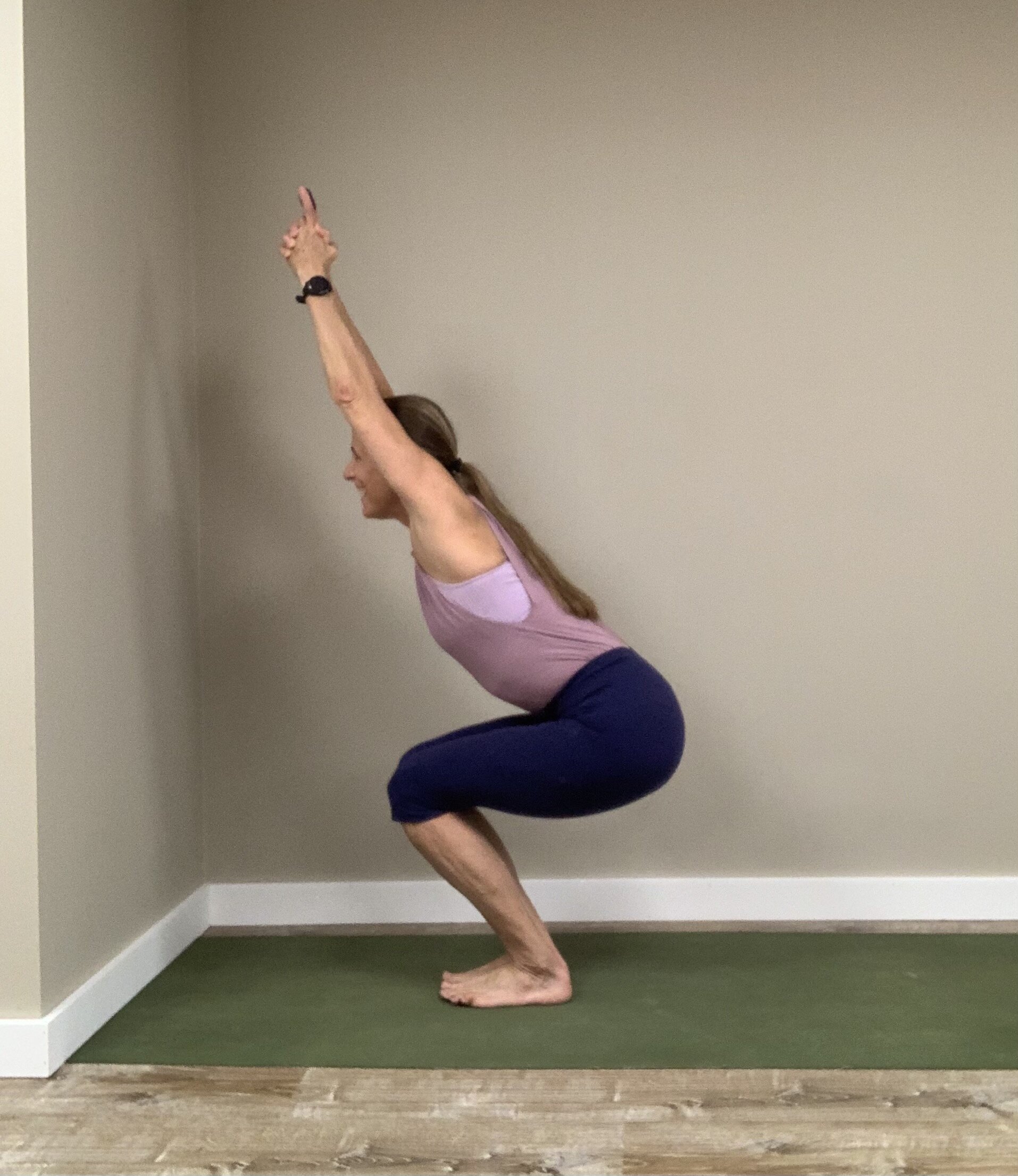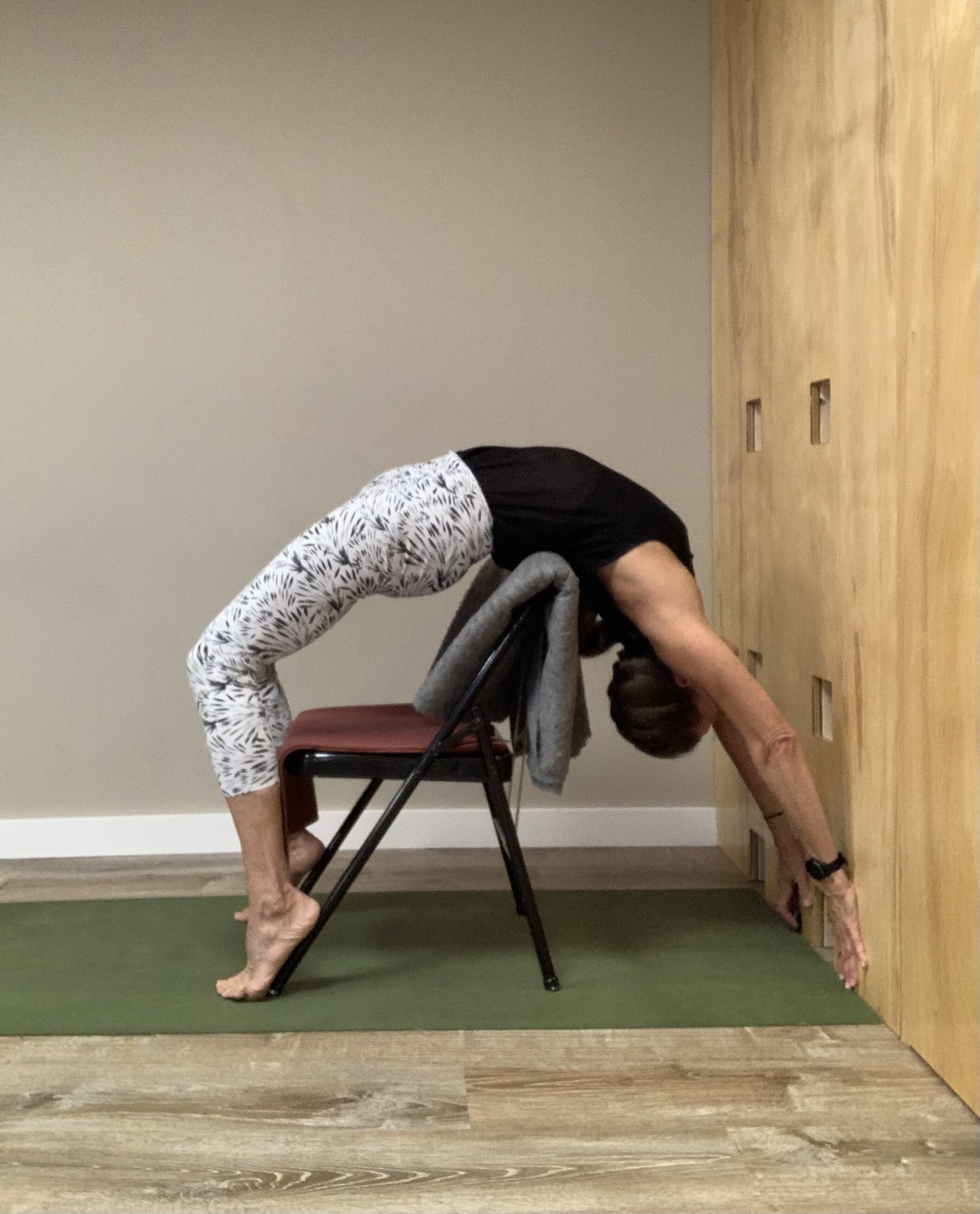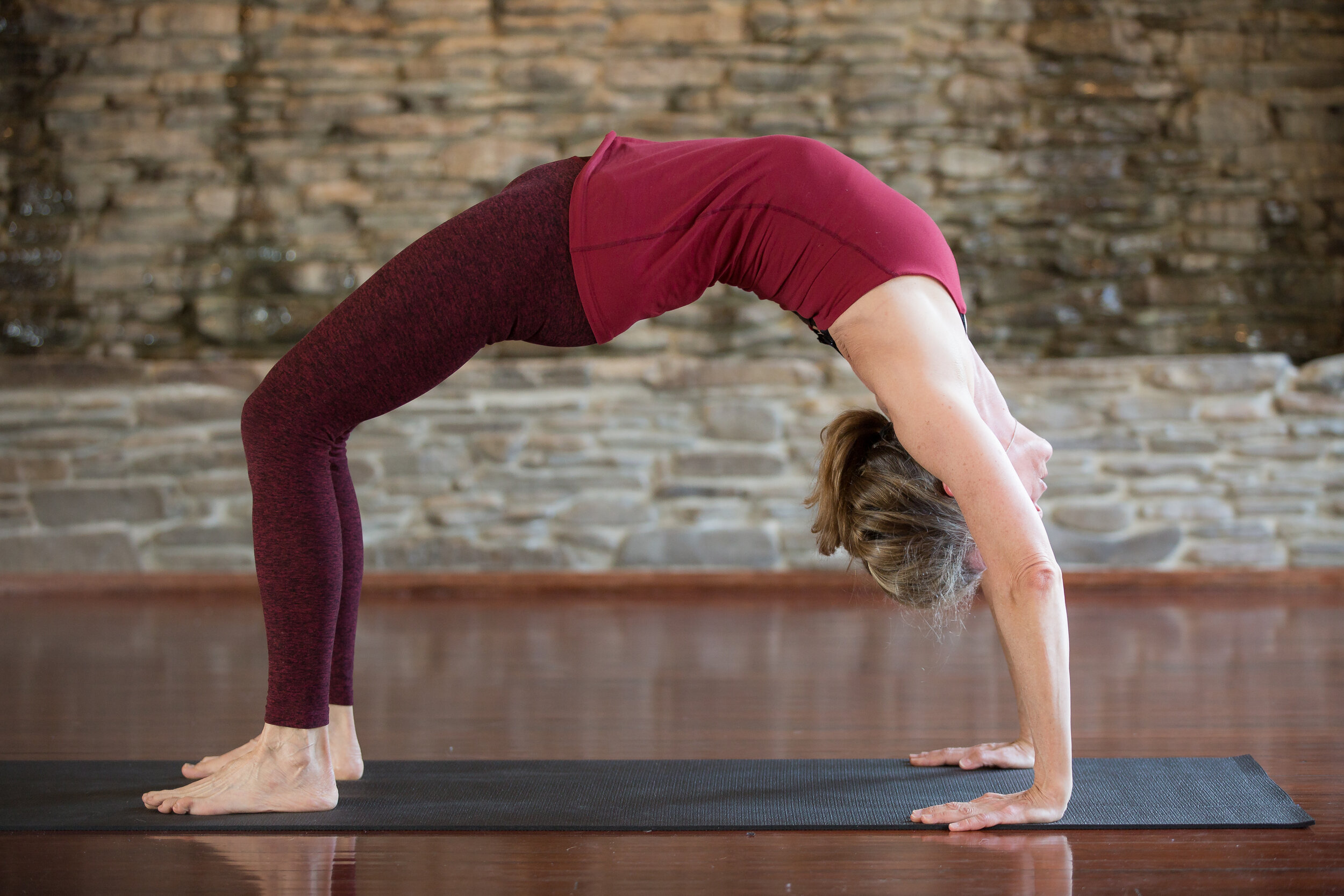This past week we worked on opening the chest and shoulders. Let’s look at the similarities in the following postures: Utkatasana, Virabhadrasana I and Urdhva Danurasana. All three of these poses have the arms overhead.
To warm up, I stretched my calves, quads and hip flexors, side body and shoulders.
Let’s build Virabhadrasana I. The front half of this pose is Utkatasana:
Legs together and thighs bent to horizontal.
The back leg and trunk of Virabhadrasana I are basically in the same position as they are in Urdhva Mukha Svanasna. Here is the pose elevated on a chair to make the pelvis as elevated as it is in Virabhadrasana I. Like this:
Toes could be tucked under or pointed.
Or, I could also do Urdhva Mukha Svanasana standing up with my pubic bone on the wall and my arms stretched out overhead, it would look like this:
Standing on the balls of the feet, heels raised, as in the previous picture.
I always like to say that there are only 12 yoga poses (that is not literally true) and you do them in different relationships to gravity. But check out this shape in other poses.
If you put Utkatasana and Urdhva Mukha Svanasana (the vertical version with the arms overhead as in the above photo) together you get Virabhadrasana I.
Such a challenging pose! The front leg and hip are in a forward bend, the back leg and hip are in a back bend and the hips are twisted to keep them facing forward. Back leg engaged, pubic bone lifts up, navel in, chest up, look up and reach the arms back.
Now look at Utkatasana horizontally and see how it is related to Urdhva Danurasana:
Zoey is keeping me company.
If I stretch my legs out straight the pose looks like Urdhva Mukha Svanasana with my arms overhead or the same as the back leg, trunk and arms of Virabhadrasana I:
This is really called Dwi Pada Viparita Dandasana, or, is it Urdhva Mukha Svanasana lying on your back? Can you see how this is the same pose I did standing, above.
Next, I move on to Urdhva Danurasana over a chair, which is a deeper bend than the previous pose:
You have to figure out the distance from the wall: too close and you won’t be able to straighten your arms. Too far away and you won’t be able to walk down the wall. Important; keep your heels on the chair legs!
And, finally, Urdhva Danurasana full pose:
Arms straight and parallel, legs parallel and the toes pointing straight ahead.
I love props!
Working with props has allowed me to keep working deeply in my poses as I get older.
They have also been a big help when I have been injured.
I could do backbends over my bench even when I had a broken wrist or a foot.
A modified practice is better than no practice at all.
If you are interested in working with me using the props to help you go deeper in your postures, schedule a private with me. I’d love to help you see what you are capable of. Contact me for more information.









